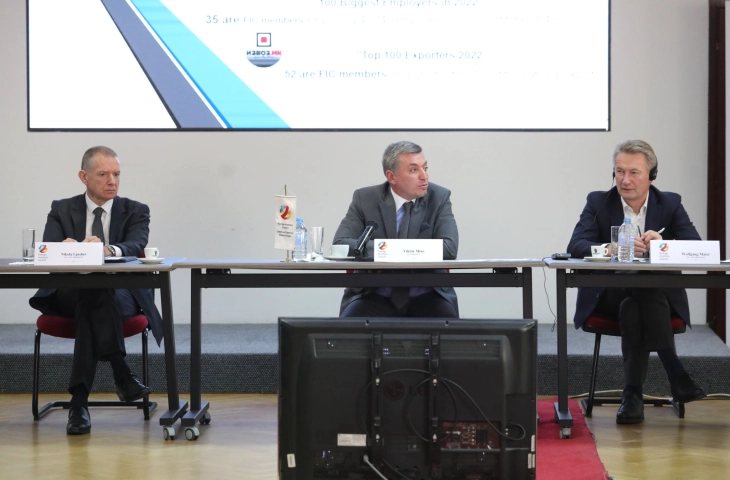Survey: Only 43 percent of foreign investors in North Macedonia would do so in hindsight
- Only 43 percent of foreign investors who have invested in running companies in North Macedonia would decide to make the same investments again for the first time, according to a recent Economic Chamber Foreign Investors Council survey.

Skopje, 19 December 2023 (MIA) — Only 43 percent of foreign investors who have invested in running companies in North Macedonia would decide to make the same investments again for the first time, according to a recent Economic Chamber Foreign Investors Council survey.
The "2023 Business Investment Indicator" survey found that low taxes and a favorable business climate were the country's main advantages for foreign investors.
Presenting the findings at the Economic Chamber on Tuesday, Foreign Investors Council chair Viktor Mizo said the survey had been conducted between Nov. 20 and Dec. 12 among investors employing 38,000 workers in companies with total revenues of 7.7 billion euros last year.
Regarding their production, Mizo said, for 45 percent of them production increased in 2022, for 36 percent it dropped, and for 19 percent it remained the same.
As many as 37 percent of companies surveyed were not satisfied with the existing infrastructure, 50 percent were partially satisfied, and only 10 percent were completely satisfied.

Asked about their expectations from the country's joining the European union, 53 percent voiced positive expectations as they were looking forward to accessing a larger market without any customs procedures.
As many as 13 percent had negative expectations, either because of larger competition or because of fears that workers would emigrate.
About a third of the companies, or 32 percent, had no expectations or did not expect that the entry into the EU would happen soon so they did not factor it into their business plans, Mizo said.
Foreign investors, he added, suggested the state make improvements such as have more frequent communication with them through meetings and visits to their companies; employ professionals with experience of different industries and knowledge of global standards; update regulations related to market developments; show transparency and open dialogue before adopting laws affecting company operations; and increase coordination between state institutions.
They also asked for simpler administrative procedures regarding state assistance and a faster response time as well as that the assistance be aligned with market conditions and requirements, Mizo said.
"The biggest risks for business in 2024, according to the companies surveyed, were labor shortage, inflation, inconsistent economic policies, higher energy prices, and corruption," he added.
As many as 90 percent of the companies had problems in finding skilled workers, especially engineering and technical staff. The reason for this, according to them, was emigration, a lack of interest in working in the industry, and a lack of work experience. mr/







